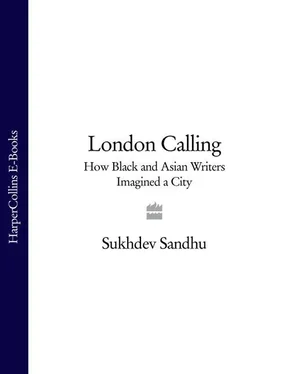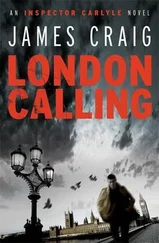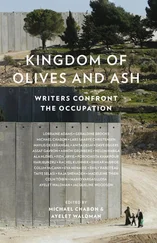It could be argued, of course, that the literary history I am about to narrate could also be told about other ethnic groups who arrived in London during the past few centuries. There would be a good deal of truth in this, and the likes of Children of the Ghetto (1892) by Israel Zangwill or Emanuel Litvinoff’s Journey Through A Small Planet (1972) certainly do have a lot in common with many of the books looked at in London Calling . Not only do they cover the same benighted urban locales and totter-down social milieux, but they share with black and Asian accounts what the critic Raymond Williams called a ‘structure of feeling’. This includes a keen interest in labour (both its dignity and indignities); an uneasy relationship with what is perceived as ‘mainstream’ culture – and an attendant refusal to neglect marginal sectors of society; and, most of all, a hunger to find a literary voice capable of evoking the hopes and fears, the din and chatter, of people who speak in tongues dissonant to the ears of longer-resident Londoners. 12
Yet the simple fact of not being white in London matters a great deal. It means black and Asian accounts of the capital cannot be conflated with those of writers from other immigrant groups. Three centuries of imperial history also make a difference: authors in this book often bridle at the social roles they feel Londoners, victims of shoddy education, are asking them to inhabit.
I have, as will become apparent, a soft spot for rhapsodical writers, those who are not embarrassed to talk about having fun in the city. Black and Asian writing is often seen as worthy, rather than enjoyable. Reading histories of immigrants in London one is often left with the impression that if they weren’t being bruised and harried by hostile whites, then they spent all their spare time agitating and organizing. Many immigrants were harried. And a not-insubstantial minority did agitate. But feel-good (or should that be feel-angry?) narratives which impute to their subjects ceaseless radicalism tend to overlook the fact that, throughout the centuries, the primary struggles for most black and Asian Londoners have been domestic, not political. They wanted to have a bed to sleep in, food on the table, friends with whom to banter, someone to cuddle up to at night, their kids to be safe and happy. The pursuit of pleasure and comfort overrode the pursuit of political equity.
Not that the two are mutually opposite goals. Nor would I want to downplay how challenging life in the capital has been for black and Asian Londoners. The numerous racially-motivated killings in recent years, of young men like Stephen Lawrence and Ricky Reel, attest to that fact. And yet I would still argue that London has been good to people coming from the old Empire, just as they have been good for London. That’s why so many of them live here rather than, say, in Taunton or the north-west of England. They have never had to reside in segregated ghettos as in the United States. Riots have been few. Inter-racial contact has been common. Year after year, decade after decade, from one century to the next, they have come here, from abroad as well as from other parts of England, by various means – from slave ship to the freezing undercarriage of a jet plane – in order to flee poverty, apartheid, ordinariness. They found in this old, old city a chance to become new, to slough off their pasts. London gave them the necessary liberty. It asked for very little in return. Certainly not for loyalty: newcomers were able to rail against slavery, dictatorship, imperialism, London itself. They had free congress. They were emotionally and intellectually unshackled. And so, for all the bleakness and hard times recounted in it, this book is, as are many of the books it discusses, a love letter to London.
Конец ознакомительного фрагмента.
Текст предоставлен ООО «ЛитРес».
Прочитайте эту книгу целиком, купив полную легальную версию на ЛитРес.
Безопасно оплатить книгу можно банковской картой Visa, MasterCard, Maestro, со счета мобильного телефона, с платежного терминала, в салоне МТС или Связной, через PayPal, WebMoney, Яндекс.Деньги, QIWI Кошелек, бонусными картами или другим удобным Вам способом.












